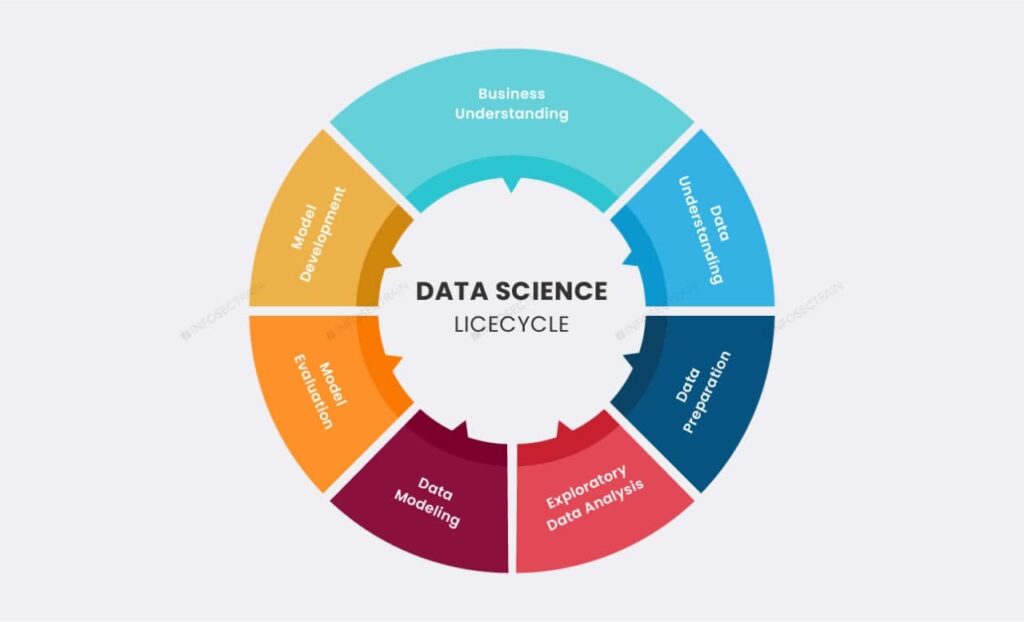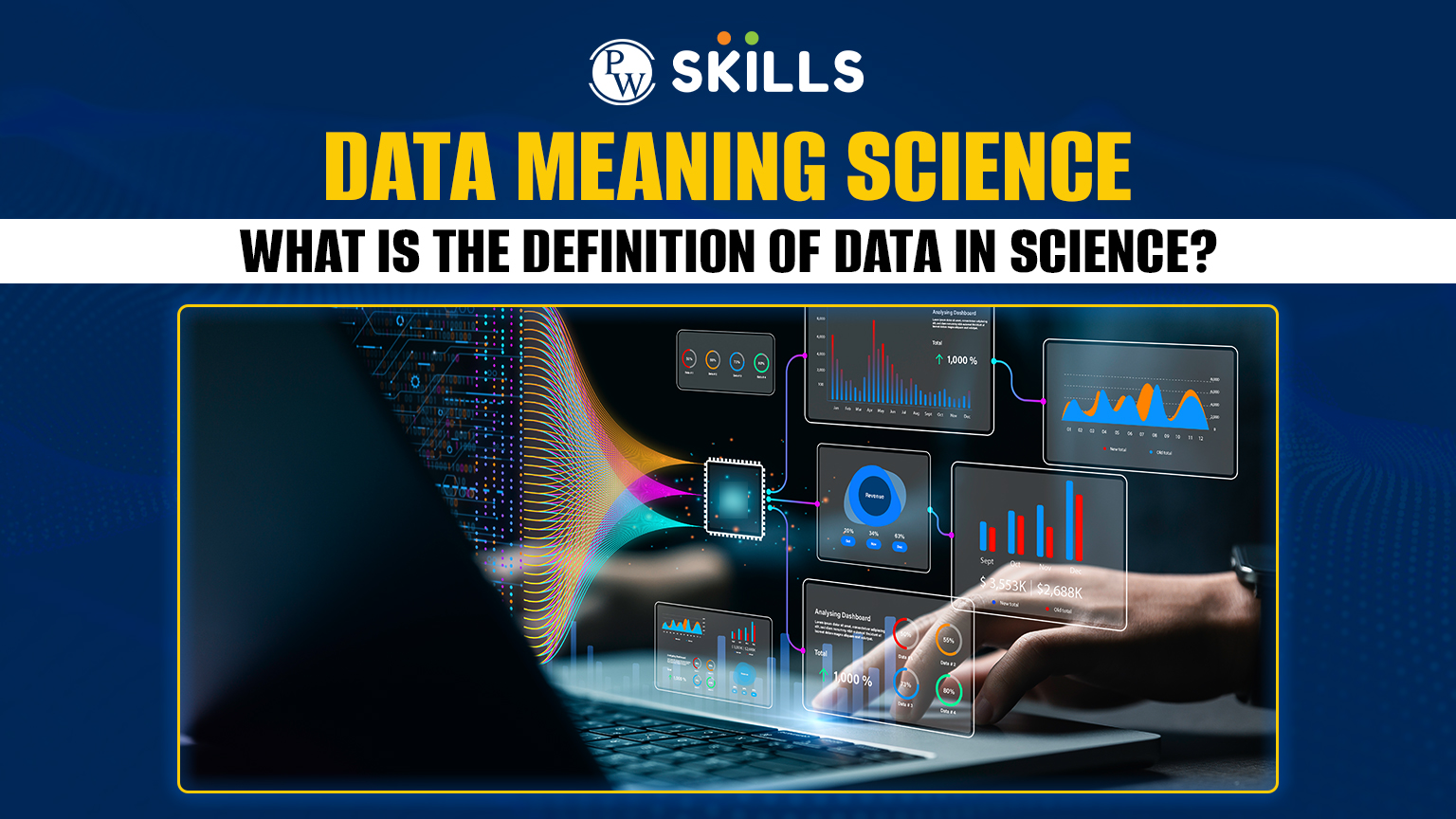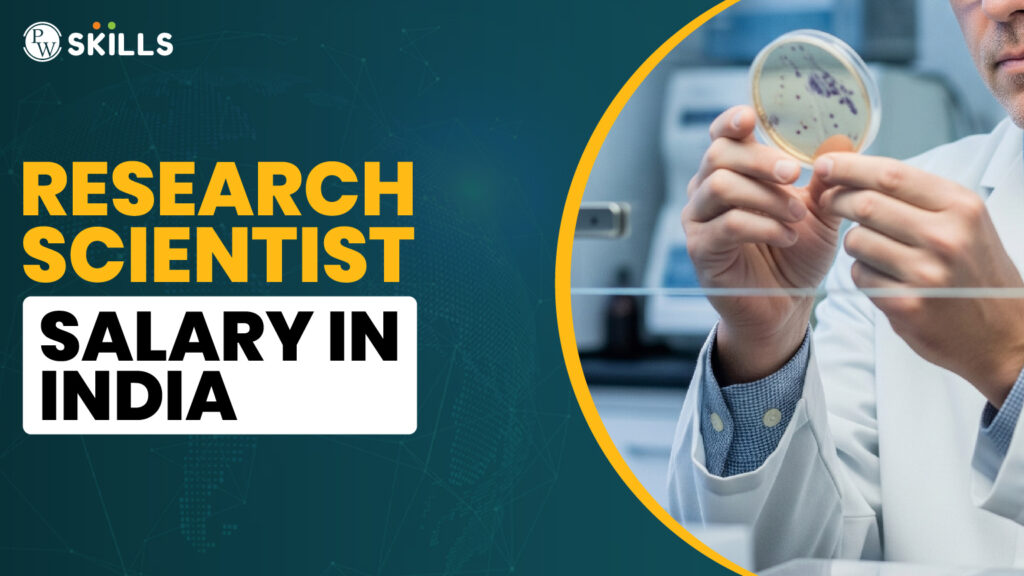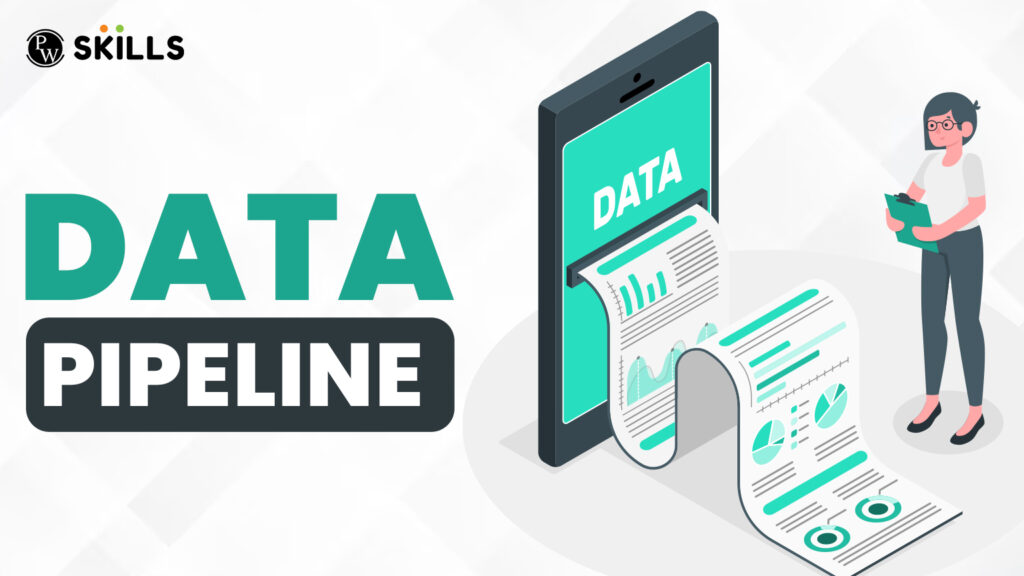Data science has become a crucial part of many industries today due to the huge amount of data generated every day. It is a topic that is widely discussed in the tech world.
Over the years, the use of data science has grown significantly, with more companies adopting it to improve their business operations and enhance customer satisfaction. Businesses now use data science techniques to analyze data, find patterns, and make better decisions. In this article, we’ll explain what data meaning science is in simple terms and guide you on how to start your career as a data scientist.
What Is Data Meaning Science.
The term “data science” is made up of two main words: “data” and “science.” let us understand both of them to learn what data meaning science is and what it include.
Data refers to raw information that is collected, stored, and processed. Today, huge amounts of data are created every second from sources like sensors, social media, online transactions, and more. This data can be in organized forms like databases or unorganized forms like text, images, and videos.
Science involves studying and understanding things using systematic methods. It means forming ideas, testing them through experiments, looking at results, and making conclusions based on evidence.
When we combine these two words, “data science” means the study of data using scientific methods. It is about applying different techniques, using tools, and understanding data deeply to find patterns, make predictions, and draw insights. Data science helps us understand data better and use it for making decisions in various fields and industries.
In short, data science is about using science to discover the hidden value within data and make better decisions based on it.
Data Science Example
Let us understand data meaning science better with the help of an example – Imagine you are using your favorite social media app, and you notice that certain posts that you like are always there on your feed- like cute animal videos, tasty recipes, or beautiful travel photos.
From the app’s point of view, they want you to stay engaged and come back often. This is where data science helps. The app collects information about what you like, share, or comment on. Data science then analyzes this information to understand your interests better.
For example, if you spend more time watching animal videos than looking at food recipes, the app learns that you love pet content. So, it shows you more cute pet videos to keep you interested. It might even predict what type of pet video you will enjoy next based on what you’ve watched before.
In short, data science helps social media apps to understand what you like and personalize your experience. It is all about using data to show you the content you love and keep you coming back for more.
Data Science Life Cycle?
Now that you know what data meaning science is, let us talk about the data science lifecycle. This lifecycle has five key stages, each with specific tasks:

- Data Collection: This is the first stage where data is collected from different sources. It includes gathering raw data through various methods like data acquisition, data entry, data mining, and data extraction. The data collected can be structured (organized) or unstructured (messy and scattered).
- Maintain: In this stage, the raw data is stored and organized for use. Tasks include storing the data in a data warehouse, cleaning the data, and setting it up for further processing. The goal is to make the data ready and usable for analysis.
- Process: The data is now prepared and examined for patterns and trends. This step involves methods like data mining, classification, and summarization to understand how the data can be used for making predictions.
- Analyze: This is where the main analysis happens. Data scientists perform different types of analyses such as predictive analysis, text mining, and regression to gain insights and solve specific problems.
- Communicate: In the final stage, the results are presented in a clear format. Data is shown using charts, graphs, and reports to help decision-makers understand and act on the findings.
Terms Relate To Data Science?
Before starting with data science, let us understand some of the important terms related to data science that will help you to become a proficient data scientist:
- Machine Learning: Machine learning is an essential part of data science. It involves using ML algorithms to learn from data and make predictions. Understanding machine learning and having a basic idea of statistics is crucial for a data scientist.
- Modeling: Data modeling helps in making quick calculations and predictions using existing data. It involves choosing the right algorithm to solve a problem and training it to give accurate results. Modeling is a key part of machine learning.
- Statistics: Statistics form the foundation of data science. Knowing how to use statistical methods can help you analyze data and get useful insights from it.
- Programming: Basic programming skills are needed to work with data. Python and R are the most common languages for data science. Python is especially popular because it’s beginner-friendly and has many useful libraries for data analysis and machine learning.
- Databases: Understanding databases is important for storing and managing data. A data scientist should know how to work with databases and extract data as needed.
Different Jobs in Data Science Field
A data science job involves using different methods and tools to find useful information in both organized and unorganized data. Here are some common roles in data science:
1. Data Scientist
What They Do: Analyze large amounts of data, create machine learning models, and share insights to help businesses make better decisions.
Skills Needed: Know how to code in languages like Python or R, understand statistics and machine learning, visualize data, and have knowledge about the specific industry.
2. Data Analyst
What They Do: Collect, clean, and analyze data to find trends and patterns. They often make reports and dashboards to share their findings with others.
Skills Needed: Strong skills in SQL for data querying, experience with visualization tools like Tableau or Power BI, basic knowledge of statistics, and familiarity with Excel or Google Sheets.
3. Machine Learning Engineer
What They Do: They build and deploy machine learning models that can run on a large scale. They also improve model performance and integrate them into existing systems.
Skills Needed: They should be proficient in programming languages like Python or Java, experienced with machine learning frameworks like TensorFlow or PyTorch, have knowledge of cloud services like AWS or Azure, and have skills in software engineering.
Data Engineer
What They Do: Create data pipelines to collect, change, and store large amounts of data. They ensure the data is reliable and can grow as needed.
Skills Needed: Knowledge of database systems (SQL and NoSQL), coding in Python or Java, experience with big data tools like Hadoop or Spark, and understanding of data warehousing concepts.
Business Intelligence (BI) Analyst
What They Do: Work with business teams to gather requirements, create BI reports and dashboards, and provide insights based on data to support decisions.
Skills Needed: Proficient in BI tools like Tableau, Power BI, or Looker, strong SQL skills, understanding of data visualization, and the ability to translate business needs into technical solutions.
Data Architect
What They Do: Design the structure of data systems, including database design and data warehouses. They create data models and set data management policies.
Skills Needed: Strong knowledge of database technologies, experience with data modeling tools, understanding of data integration, and familiarity with data security and compliance rules.
These roles work together to help businesses make sense of their data and drive smart decisions.
Learn Data Science With PW Skills
If you are a beginner looking to start your career as a data scientist. Then this data science with Gen AI course is a perfect fit for you. Enrolling in this 6-month-long beginner-friendly course will clear all your concepts starting from the beginner to the advanced level along with the knowledge of Artificial intelligence.
The key features that make this course the standout choice in the market include – Mentorship from industrial experts, an updated curriculum, regular assignments, and doubt-clearing sessions, 100% job assistance guarantee, and much more.
Data Meaning Science FAQs
What skills are required for a career in Data Science?
A Data Scientist needs strong skills in programming languages like Python, R, data analysis, statistical modeling, machine learning, and data visualization. Knowledge of tools like SQL, Tableau, and Hadoop is also beneficial. Apart from this, Soft skills like problem-solving, critical thinking, and communication are equally important.
What are the main applications of Data Science?
Data Science is used in many applications, such as fraud detection, recommendation systems, customer segmentation, predictive analytics, and natural language processing. It helps businesses understand customer behavior, optimize marketing strategies, and improve product development.
What are some popular Data Science tools and technologies?
Popular tools and technologies in Data Science include Python, R, SQL, Apache Hadoop, Apache Spark, Tableau, and Jupyter Notebook. These tools help with data processing, analysis, visualization, and building machine learning models.






